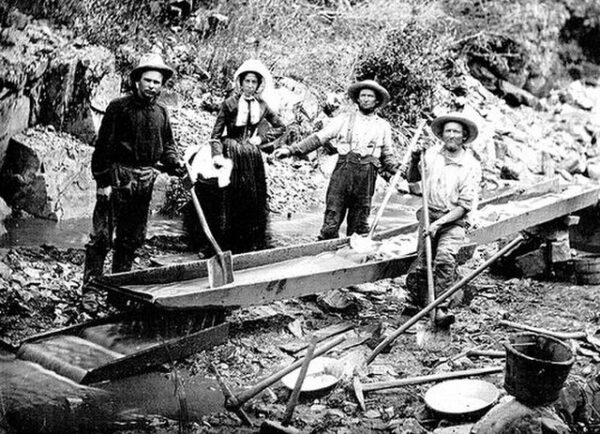On December 5, 1848, President James K. Polk delivered a message to Congress that changed the nation forever. He said gold had been found in California. His declaration set in motion one of the most transformative episodes in American history: the California Gold Rush. Polk’s confirmation of the discovery came just three years after the United States had acquired California through the Treaty of Guadalupe Hidalgo, which ended the Mexican-American War. His remarks emphasized the extraordinary value of the territory and described the gold deposits as “remarkable,” underscoring their credibility and immense potential. Polk’s address was more than an update—it was a call to action that ignited dreams of fortune and opportunity across the nation.
The origins of this historic event trace back to January 1848, when James W. Marshall discovered gold at Sutter’s Mill in Coloma, California. While initial reports of the discovery spread gradually, they gained traction over time, eventually reaching the East Coast and Europe. By the time Polk publicly addressed the discovery, the phenomenon of “gold fever” was already taking root, but his announcement gave it new legitimacy and urgency. His endorsement transformed what had been a series of scattered reports into a nationwide movement.
Polk framed this discovery within the broader vision of Manifest Destiny, the belief that the United States was destined to expand across the North American continent. His message portrayed California as a land rich in natural resources, teeming with potential for settlement and economic development. He urged Americans to seize the opportunities of westward expansion, emphasizing the ways California’s wealth could strengthen the nation. Yet, Polk also acknowledged the logistical challenges presented by California’s distance from the rest of the country. He encouraged Congress to invest in infrastructure improvements, such as transportation and communication networks, to integrate California more fully into the Union.
The president’s address became a catalyst for unprecedented migration. Inspired by Polk’s words, tens of thousands of Americans, along with immigrants from around the world, embarked on perilous journeys to California. These “Forty-Niners” faced grueling conditions as they traveled by land and sea to reach the goldfields. By 1849, the influx of settlers had transformed California’s social and economic landscape, with cities like San Francisco emerging as vital hubs of commerce and activity. However, this migration came with profound consequences, including the displacement of Native American communities, environmental destruction, and the rise of lawless mining towns. Despite these challenges, the gold rush accelerated California’s transition to statehood, achieved in 1850.
The economic impact of the gold rush was immense, injecting vast wealth into the national economy. Gold from California financed infrastructure projects, expanded the banking system, and bolstered the United States’ position in global trade. Politically, the migration and settlement heightened tensions over slavery. As California’s population surged, debates over whether the state would permit slavery added fuel to the growing sectional divide that would eventually culminate in the Civil War.
Polk’s announcement stands as a pivotal moment in American history, symbolizing both the opportunities and the challenges of westward expansion. His words to Congress did more than confirm the discovery of gold—they marked the beginning of a new era that reshaped the nation’s identity and future.






